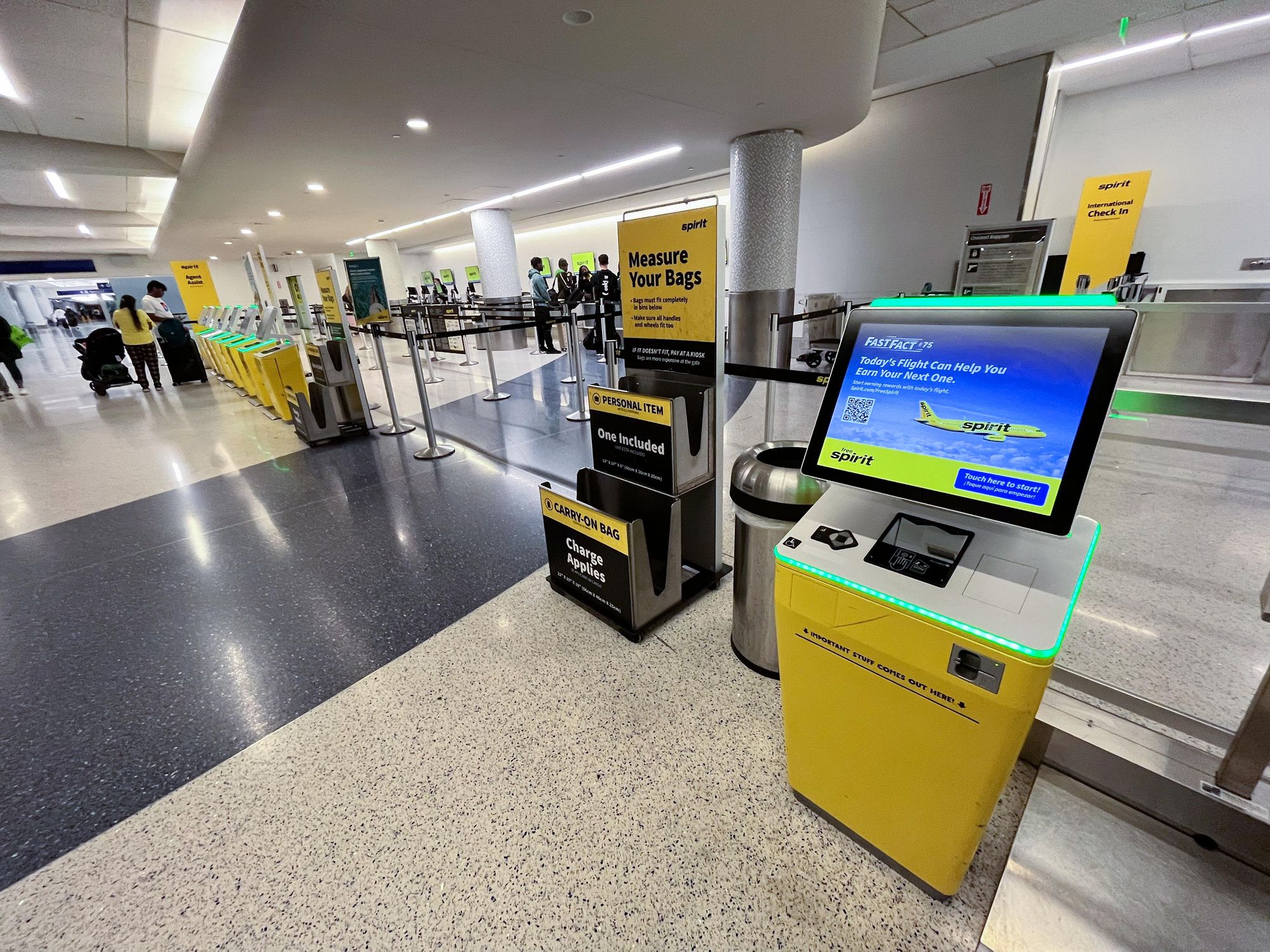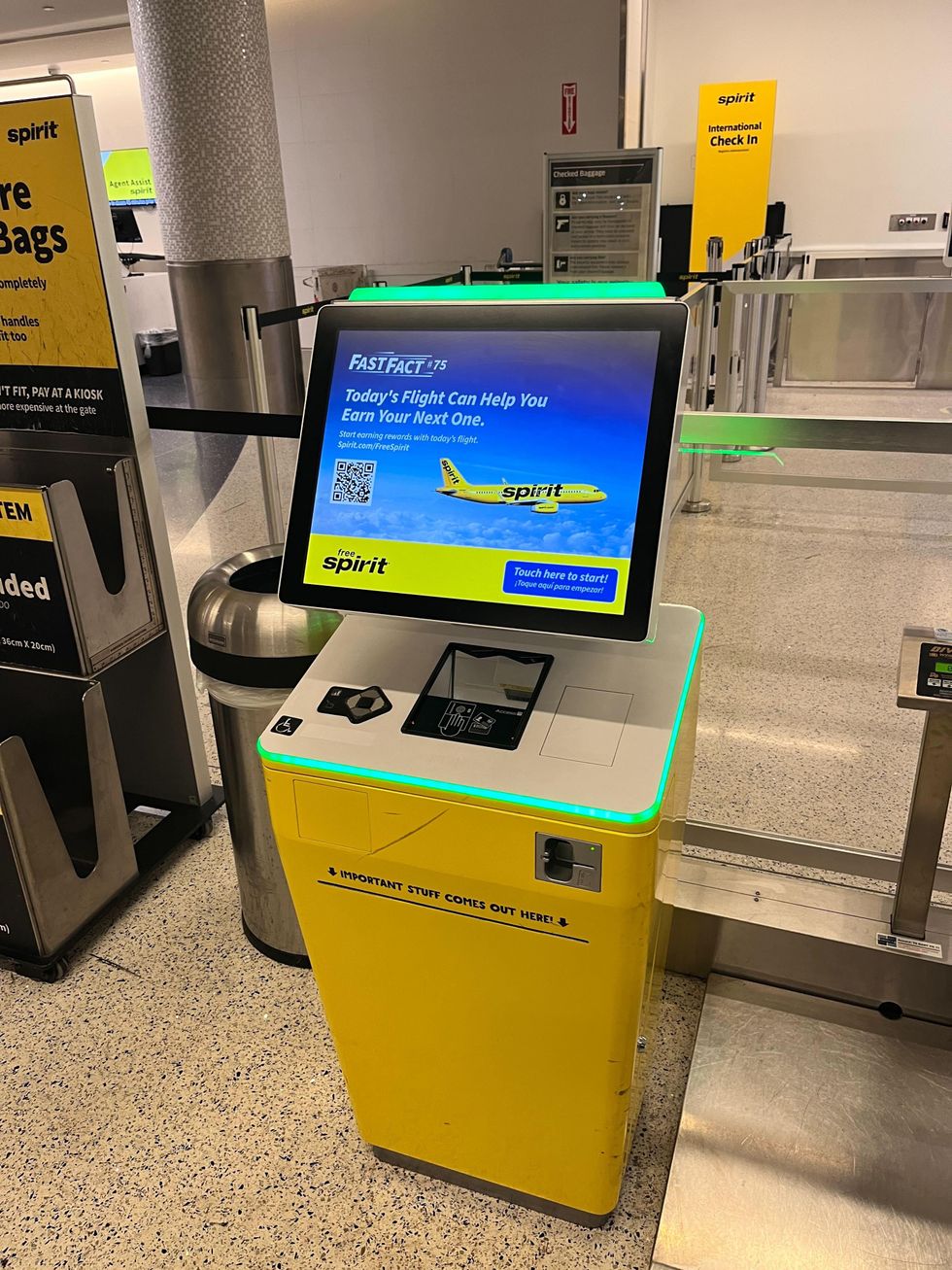Review: LAX's Self-Bag Drop and CAT Machine Will Help You Breeze Through The Airport
Decerry Donato is a reporter at dot.LA. Prior to that, she was an editorial fellow at the company. Decerry received her bachelor's degree in literary journalism from the University of California, Irvine. She continues to write stories to inform the community about issues or events that take place in the L.A. area. On the weekends, she can be found hiking in the Angeles National forest or sifting through racks at your local thrift store.

Los Angeles International Airport (LAX) is notorious for its long Transportation Security Administration (TSA) lines and major traffic jams. Now LAX has technology in place to help decrease delays and wait times and has implemented technology to support a contactless experience.
A few days ago, I was finally able to use the tech that rolled out within the last couple of years. I was at LAX for my first international flight in over 10 years. As an Angeleno, I made sure I left early to give myself time to check in my bag.
Once I entered the terminal, I was instantly greeted by the taxi cab-colored kiosks that line Spirit Airlines’ check-in station–the self bag drop. I went to an available kiosk and proceeded to tap the screen. After scanning my boarding pass, I answered a series of questions regarding my flight–all of them were questions an airline attendant would normally ask while checking in.
As with any international flight, a passport is required to board. The kiosk required that I scan my passport to move forward with my checked luggage. Once all of those steps were complete, I received a printed luggage tag along with a paper copy of my boarding pass.
The second station is where you drop off your luggage. I placed my suitcase on the conveyor belt and tapped another screen, scanned my passport once more, and the camera on top of the screen quickly scanned my face to verify that it was my passport.
In under five minutes I was able to check my bag with no hiccups. But if travelers need assistance, there are a few agents nearby that can help with the process.

My day was looking bright, but I was dreading the TSA line that came next. As the TSA worker directed me to line up, I saw passengers in the TSA Precheck line and they were going through twice as fast as the line I was in.
I watched as the Precheck passengers inserted their photo ID into a device called the next-generation credential authentication technology (CAT). The unit was introduced earlier this year. While there are concerns around photo documentation and how law enforcement agencies have used that data, everyone seemed relieved to be moving through the line.
The camera on top of an iPad-like screen captured the passenger’s photo and seconds later the passenger walked right through without having to exchange any physical documents. This was in contrast to my line, where we had to hand over boarding passes and passports to the TSA officer who inspected and thoroughly read the documents.

According to the TSA, 1,968,902 passengers walked through security checkpoints the day I traveled versus 1,455,913 people the same day last year.
Other airports in Southern California with CAT units installed include Hollywood Burbank, John Wayne, San Diego International, Ontario International and Palm Springs International.
With two hours to spare, I was in no rush to get to my gate. I did see other guests running to get to theirs, and they were stopped by one of the agents driving a golf cart. The agent offered them a lift and zoomed off. This service seemed popular among the elderly crowd as I saw a few more golf carts pass carrying guests making their way to the gate.
Just like that, guests can check in, drop off their bags and go through security in under 15 minutes. While I didn’t see the automated people mover that is still under construction, LAX has definitely found ways to decrease delays and wait times with its self bag drop system and CAT unit.
- New Tech At LAX Aims To Speed Check-Ins, Keep Flyers Safe - dot.LA ›
- What the DDoS Attack on LAX Could Mean for US Cybersecurity - dot.LA ›
Decerry Donato is a reporter at dot.LA. Prior to that, she was an editorial fellow at the company. Decerry received her bachelor's degree in literary journalism from the University of California, Irvine. She continues to write stories to inform the community about issues or events that take place in the L.A. area. On the weekends, she can be found hiking in the Angeles National forest or sifting through racks at your local thrift store.





 Image Source: Skyryse
Image Source: Skyryse